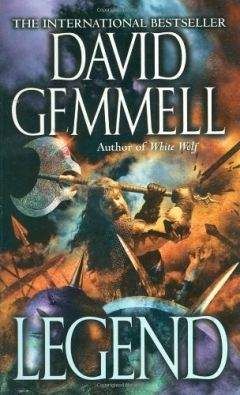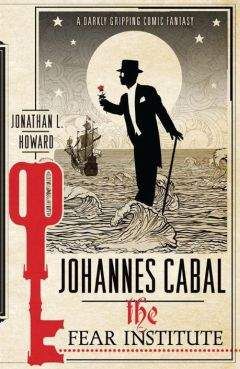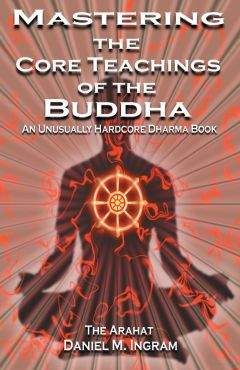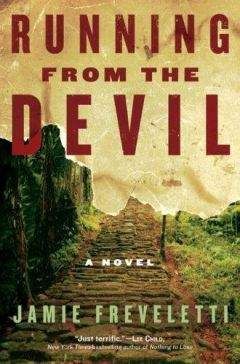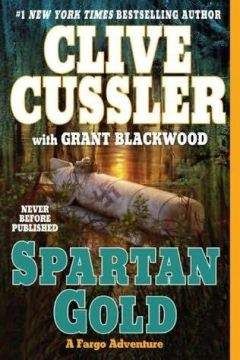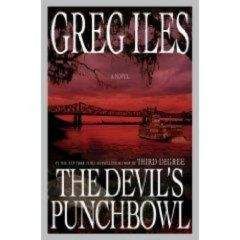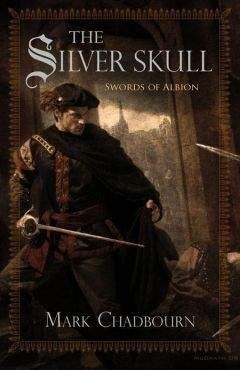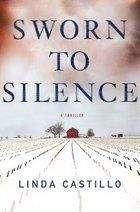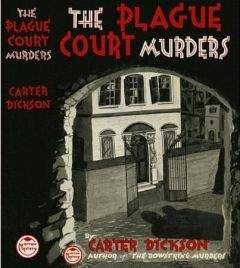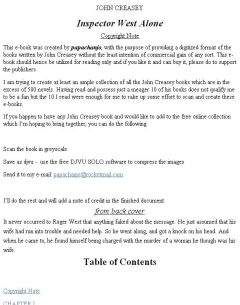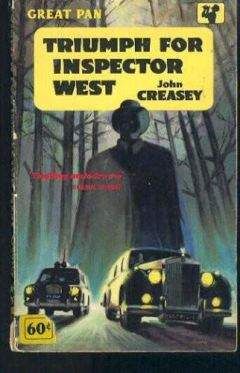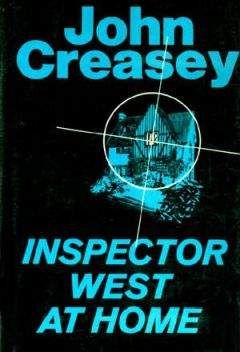The Theatre - Kellerman, Jonathan
Скачивание начинается... Если скачивание не началось автоматически, пожалуйста нажмите на эту ссылку.
Жалоба
Напишите нам, и мы в срочном порядке примем меры.
Описание книги "Kellerman, Jonathan"
Описание и краткое содержание "Kellerman, Jonathan" читать бесплатно онлайн.
For all its many crimes of passion and politics, Jerusalem has only once before been victimized by a serial killer. Now the elusive psychopath is back, slipping through the fingers of police inspector Daniel Sharavi. And one murderer with a taste for young Arab women can destroy the delicate balance Jerusalem needs to survive.
"Al Maktoub" he said, casually. "It was written on my forehead."
"How is your head now?"
"Very well, bless the Prophet."
"Good. Tell me, Mr. Hajab, how many others live here at the hospital?"
"I've never taken count."
Before Daniel could pursue the point, a shiny black Lancia Beta drove up to the entrance. The sports car let out a belch, then shuddered as its engine died. The driver's door opened and out climbed a tall fair-haired man dressed in a khaki safari jacket over brown corduroy trousers. Under the jacket was a white shirt and green-and-red striped tie. The man was of indeterminate age-one of those smooth-faced types who could be anywhere from thirty to forty, wide-shouldered and narrow-hipped, with a heavy build and long arms that dangled loosely. His light hair was waxy and straight, thinning to outright baldness at the crown; his face, narrow and sunburned, topped by a high, freckled brow. His lips were chapped; his nose, uptilted, pink, and peeling. Mirrored sunglasses concealed his eyes. He faced Daniel, then Hajab. "Zia?" he said.
"Police, Mr. Baldwin," said Hajab, in English. "Questions."
The man turned back to Daniel, smiled faintly, then grew serious. "I'm Sorrel Baldwin, administrator of the hospital. What seems to be the trouble, Officer?"
His accent was American, tinctured by the kind of drawl Daniel had heard in cowboy movies. Ah'm for I'm.
"A routine investigation," said Daniel, offering his badge. Baldwin took it.
"An incident," said Hajab, growing bold.
"Uh hmm," said Baldwin, lifting his sunglasses and peering at the badge. His eyes were small, blue, shot through with red. Drinker's eyes? "And you're an inspector."
"Chief inspector."
Baldwin handed back the badge.
"Any police dealings I've had have always been with Deputy Commander Gavrieli."
Buddies with boss. Letting Daniel know that he was outclassed. But the fact that he thought Gavrieli's name still carried weight gave lie to his words. Daniel ignored the snub, got down to business.
"Mr. Baldwin, during the early hours of the morning a crime was committed-crucial- evidence was found in that gully, just down the road. I'd like to talk to your staff, to find out if anyone saw something that could help us in our investigation."
Baldwin put his sunglasses back on.
"If anyone had noticed anything," he said, "they would have reported it, I assure you."
"I'm sure they would have. But sometimes people see things-small things-and are unaware of their significance."
"What kind of crime are we talking about?" asked Baldwin.
"A major one. I'm not at liberty to say more."
"Security censorship, eh?"
Daniel smiled. "May I talk to your staff?"
Baldwin kneaded his chin with one hand. "You realize, Officer "
"Sharavi."
" Officer Sharavi, that we are an arm of the United Nations Relief and Works Agency and, as such, are entitled to diplomatic privilege with regard to police procedure."
"Of course, Mr. Baldwin."
"Understand also that involvement in local political matters is something we make a concerted effort to avoid."
"This is a criminal matter, sir. Not a political one."
"In this city," said Baldwin, "that's a fine distinction. One, I'm sorry to say, that the police don't often seem able to make." He paused, looked down at Daniel. "No, I'm sorry, Officer Sharavi, I just can't see my way clear to letting you disrupt our procedures."
As Daniel listened to the American, the image of the murdered girl intruded on his consciousness and he surrendered to a fantasy etched in anger: He, the policeman, takes hold of the bureaucrat's arm and leads him to the gully, over the edge, right into the butchery. Presses his face close to the corpse, forces him to inhale the stench of evil. Breathe that, experience it. Viscerally. Is it criminal or political, pencil pusher?
"I agree," he heard himself saying. "It is a very fine distinction. But one that we're getting better at recognizing. You remember, of course, the case of Corporal Takumbai?"
"Vaguely." Baldwin shifted his weight, looked uncomfortable. "Somewhere up north, wasn't it?"
"Yes it was. In Tiberias. Corporal Takumbai was part of a Fijian contingent assigned to the UNIFIL patrol in Southern Lebanon. He had a history of mental imbalance that no one thought was important. One night, during a holiday on the Sea of Galilee, he left his comrades, broke into an apartment, and raped two old women. Someone heard screams and called the police. When they tried to capture him, Takumbai wounded one officer and-"
"I really don't see what this has to do with-"
"-came close to killing another. Despite all that, we let him go, Mr. Baldwin. Back to Fiji, without prosecution. He was protected by his position with the United Nations and we respected that. We were able to separate the political from the criminal. There have been others, of course-a Frenchman, Grimaud, who was a compulsive shoplifter; a Finn named Kokkonen, who enjoyed getting drunk and beating up women. Even as we speak, the file of another Frenchman is being processed. This one was caught smuggling hashish resin out of the Beach Refugee Camp in Gaza. Like all the others, he'll be expelled without trial. Without public exposure. So you see, Mr. Baldwin, you have nothing to fear. We continue to protect the good name of the United Nations. We are able to make fine distinctions."
Baldwin glanced over his shoulder at Hajab, who'd listened to the exchange raptly, moving his head back and forth like a soccer fan. Reaching into his pocket, the American pulled out a set of car keys and tossed them to the watchman.
"Park the car, Zia."
Though clearly disappointed, the watchman complied. When the Lancia had driven off, Baldwin said to Daniel: "In any organization, there are going to be a few bad apples. That has nothing to do with the staff of this hospital. They're handpicked. Altruists. Good solid folk."
"I don't doubt that for a moment, Mr. Baldwin. As altruists they should be pleased to help."
The American peeled a papery shred of skin from his nose and looked toward the scene of the crime. A flock of crows rose from the gully. From somewhere behind the hospital came the bray of a donkey.
"I could," said Daniel, "go through channels. Which would mean a delay of the investigation-meetings, memoranda. We are a small country, Mr. Baldwin. News travels quickly. The longer something stretches out, the more difficult it is to keep it out of the public eye. People would want to know why so many criminals are avoiding punishment. One would hate to see the public image of the U.N. suffer needlessly."
When Baldwin didn't respond, Daniel added, "Perhaps I'm not speaking clearly. My English-"
"Your English is just fine," said Baldwin, smiling sourly.
Daniel returned the smile. "I had an excellent teacher," he said, then looked at his watch. Flipping over his note pad, he began to write. Several more moments passed.
"All right," said Baldwin, "but let's try to keep it quick."
He turned on his heel, and Daniel followed him under the arch and across the silent courtyard. A lizard scampered up the trunk of the big oak and disappeared. Daniel breathed in deeply and the aroma of roses settled moistly in his nostrils. Like a cool spray of syrup, filtered through the hot, morning air.
The hospital had a history. Daniel had learned about it in '67, during training with the 66th, when rumors of war caused every paratroop officer to study his maps and his history books.
The Amelia Catherine had begun its life as a private residence-a great, lumbering manse at the crest of the watershed between the Jordan Valley and the Mediterranean.
Conceived by a wealthy German missionary as a wedding present for his young bride and named for her, the estate had been fashioned of native limestone and marble by the hands of local masons. But its plans had been drawn up in Munich by an Anglophile architect and the result was a self-conscious display of Victoriana transported to Palestine-oversized, decidedly snobbish, surrounded by formal gardens replete with boxwood hedges, beds of flowers, and velvet lawns that perished quickly in the Judean heat. The missionary was also a man of high taste, and he shipped over tinned meats and preserved delicacies, bottles of French wine stored in cavernous cellars beneath the mansion.
The object of all this architectural affection, a frail blond fraulein of twenty-one, contracted cholera two months after her arrival in Jerusalem and was dead three weeks later. After burying her near the Grove of Gethsemane, the grieving widower found himself shaken by a crisis of faith that sucked him back to Europe, never to return, abandoning his dream house to the ruling Ottomans.
The Turks had always entertained a disdain for Jerusalem and its structures and, during four centuries of reign, had transformed it from a teeming Crusader shrine into a dusty, disease-ridden, provincial village, home to beggars, lepers, and fanatic Jew-infidels. From the moment its foundation had been laid, the Amelia Catherine had been an affront to their world view-that a Christian-infidel should be allowed to build something so vulgar as a house for a woman, a house that looked down upon the mosques of AI Aqsa and the Rock, was a grievous insult to Allah.
Heavy taxes collected from the German fool had kept these religious reservations at bay. But once he was gone, the gardens were ordered fallow, the lawns burned, the great house transformed to a military warehouse. Soon, the stink of machine grease emanated from every marble corridor.
That state of affairs endured until 1917, when the British invaded Palestine. The debased mansion on Scopus was strategically located and its begrimed windows witnessed many a long bloody battle. When the gunfire died, on December 11, General Allenby was marching into Jerusalem and the Ottoman Empire was a thing of the past.
The British welcomed themselves with a ceremony of exceptional pomp-one that amused the poor Jews and Arabs whose families had inhabited the city for centuries-and like every conquering horde before them, the new rulers lost no time refurbishing the Holy City to their taste, starting with the Amelia Catherine.
Crews of workmen were ordered to scythe through ankle-ripping coils of weeds; limestone was abraded to its original blush; cisterns were emptied, cesspools drained and relined. Within weeks, suitably impressive headquarters for the British military governor had been created and the genteel mix of small talk and the clatter of teacups could be heard on the veranda.
In 1947 tensions between Palestinian Jews and Palestinian Arabs began boiling over. The British lost their taste for empire building and quickly pulled up stakes. Fighting broke out, followed by a cease-fire and a United Nations partition that created a jigsaw solution: The land was divided into six sections, with the southern and northern coastal regions and the heartland, including Jerusalem and most major cities, granted to the Arabs. The Jews received a strip of central coastline, an inland wedge of Galilee, and the barren Negev desert. Though they'd been deeded the lion's share of natural resources, the Arabs were dissatisfied with less than everything and, in 1948, attacked the Jews. Thousands of lives and one armistice later found the Jewish portion, now called Israel, enlarged to include the entire western section of Palestine but still smaller than the Arab portion, now called Jordan, which encompassed both sides of the Jordan River and spread to the east.
Faulty prophecy left Jerusalem bizarrely divided. The Holy City had been carved up hastily on November 30, 1948, during a temporary cease-fire. The process of division was an unceremonious exercise conducted in an abandoned building in the Musrara slum by the Jewish commander, a lieutenant colonel named Moshe Dayan, and the Arab commander, a lieutenant colonel named Abdullah Tal.
Neither Dayan nor Tal thought the truce would last and both considered their efforts temporary. The Jews hoped for a permanent peace treaty with their cousins, and Abdullah Tal still harbored fantasies of conquest, having boasted only days before of riding into Jewish Jerusalem on a white horse.
They went to work, using soft, waxy pencils-Dayan's red, Tal's green-on a 1:20,000 scale map of Jerusalem, drawing crude, arbitrary lines that corresponded to a land width of 50 meters. Lines that expanded as the wax melted, cutting through the centers of homes and backyards, shops and offices, splitting the city like Solomon's baby. Lines that didn't deserve serious attention because they were nothing more than transitory sketches.
But the commanders were sectioning a land that devours its prophets, where the only consistency is surprise. As the days stretched out, cease-fire matured to armistice, sketches became international borders, the space between the wax, a no-man's-land for nineteen years.
Due to its strategic value, Mount Scopus had been divided earlier, turned into a demilitarized zone administered by the United Nations. Israel retained the ruins of Hadassah Hospital and the Hebrew University; the eastern slope, housing the battered Amelia Catherine, was assigned to Jordan. All buildings on both sides of the mountain lay vacant and unused, though minimal patrols were permitted, the weeds were kept trimmed, and Arabs farmers were allowed, illegally, to plough the fields surrounding the Amelia Catherine and grow truck crops.
In 1967 the Arabs attacked again and, once again, lost honor and land. Jerusalem fell under exclusive Jewish rule for the first time in more than three thousand years and Scopus was unified. The Amelia Catherine entered its fifth metamorphosis, as a hospital, operated jointly by the U.N. and a Swiss-based group of Protestant missionaries.
It was a hasty transformation, wholly lacking in sentiment: the compound enclosed by high chain-link fences, grand suites reduced to wards by particle-board partitions, the mansion's large paneled library painted a pale clinical green and apportioned into a warren of offices. Soon the high stone walls resonated with the moans and muffled sobs of human infirmity.
Подписывайтесь на наши страницы в социальных сетях.
Будьте в курсе последних книжных новинок, комментируйте, обсуждайте. Мы ждём Вас!
Похожие книги на "Kellerman, Jonathan"
Книги похожие на "Kellerman, Jonathan" читать онлайн или скачать бесплатно полные версии.
Мы рекомендуем Вам зарегистрироваться либо войти на сайт под своим именем.
Отзывы о "The Theatre - Kellerman, Jonathan"
Отзывы читателей о книге "Kellerman, Jonathan", комментарии и мнения людей о произведении.





